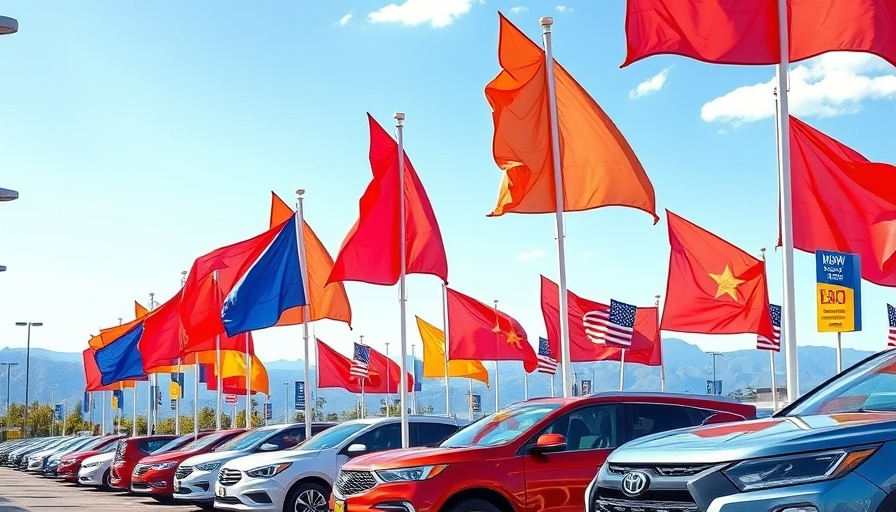
Impact of Auto Tariffs on Car Prices in Bakersfield
In a rapidly evolving automotive landscape, car buyers in Bakersfield, California, are bracing for a significant financial impact due to President Trump's auto tariffs. These tariffs are projected to add nearly $2,000 to the cost of each vehicle purchased, a hefty price increase that could have lasting repercussions for the local community.
The $30 Billion Tariff Burden Explained
According to industry consultants at AlixPartners, the total cost of the tariffs is estimated at a staggering $30 billion. Mark Wakefield, the global auto market lead, explains that companies like General Motors and Ford are expected to shoulder most of this financial burden, with auto manufacturers passing along about 80% of the costs to consumers. This means that car buyers in Bakersfield will be paying approximately $1,760 more per vehicle.
Market Predictions and Sales Impact
While the immediate effect appears daunting, Wakefield expresses a more optimistic perspective regarding future auto sales, suggesting that they could reach 17 million by 2030, a slight increase over the previous year. However, the increase in prices is likely to result in about 1 million fewer vehicles sold in the U.S. over the next three years, presenting a worrying trend for Bakersfield residents looking to invest in new cars.
Challenges for Electric Vehicles Amid Tariff Struggles
The tariffs are not the only hurdle facing American automakers. A dramatic reduction in incentives for electric vehicle (EV) purchases, such as the $7,500 tax credit, is likely to steer consumers back to traditional gasoline vehicles, as they prioritize affordability.
AlixPartners revised its forecast for EV market growth in the U.S., with expectations that EVs will make up just 17% of the market share by 2030, down from 31%. This is a troubling statistic for environmentally conscious consumers in Bakersfield, who may find fewer options as they try to transition to cleaner technologies.
Dependence on Global Markets: The China Risk
As American automakers grapple with these significant changes, there's concern over their growing dependency on foreign markets, particularly China. With the push back against EVs and the looming tariffs, American manufacturers might resort to using technologies from overseas competitors, compromising the standing of U.S. automakers in the global arena.
Wakefield warns that the “aggressive take-down of support for EVs” could result in American companies either licensing technology or forming joint ventures with Chinese firms, marking a considerable shift in the automotive industry.
What Bakersfield Residents Can Expect
The forecasted price hikes and the retraction of EV incentives signify a challenging period for car buyers in Bakersfield. As the local economy adjusts to these new realities, residents are encouraged to consider their vehicle choices carefully. Will they stick with traditional combustion engines, or wait for the market to stabilize in favor of EVs? Their decisions now could significantly shape the future of their local automotive options.
Conclusion: Taking Informed Actions
As the local community navigates these turbulent times in the automotive market, it's crucial to stay informed. Understanding the ramifications of auto tariffs on personal finances can empower Bakersfield residents to make wise purchasing decisions that align with both their budgets and aspirations for environmentally friendly travel.
Now more than ever, consumers should interact with local dealerships and explore various financing options. Awareness of market changes can help mitigate financial impacts, allowing for smarter spending decisions amidst evolving automotive trends.
 Add Row
Add Row  Add
Add 



Write A Comment